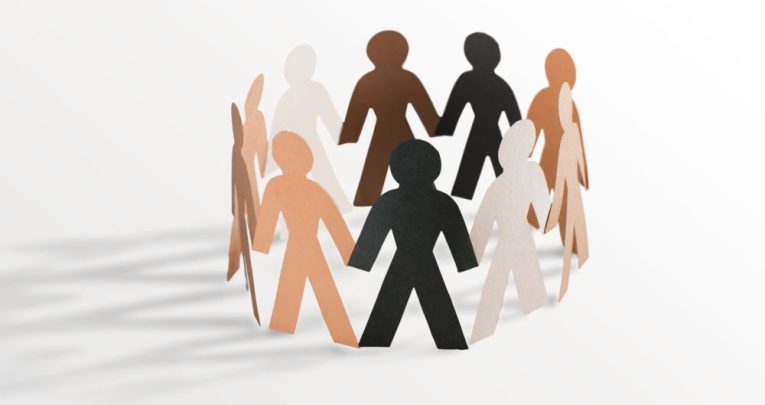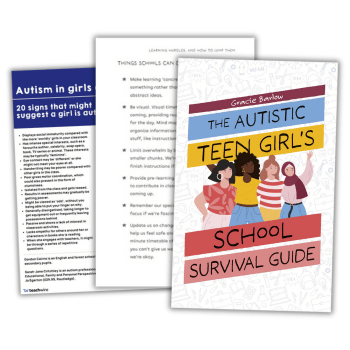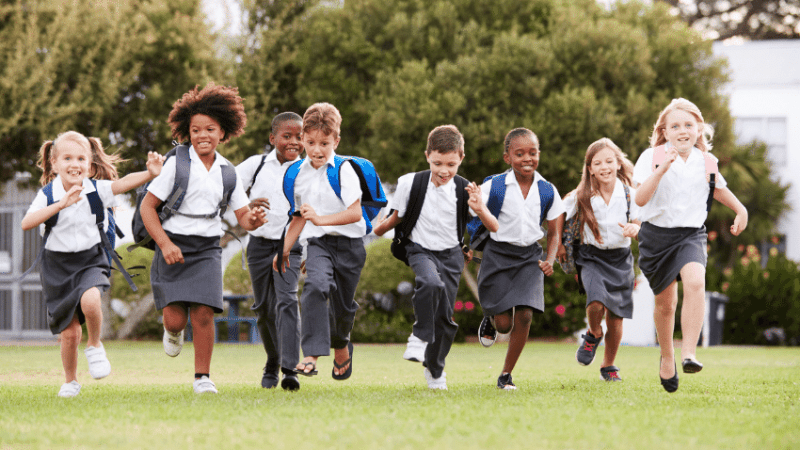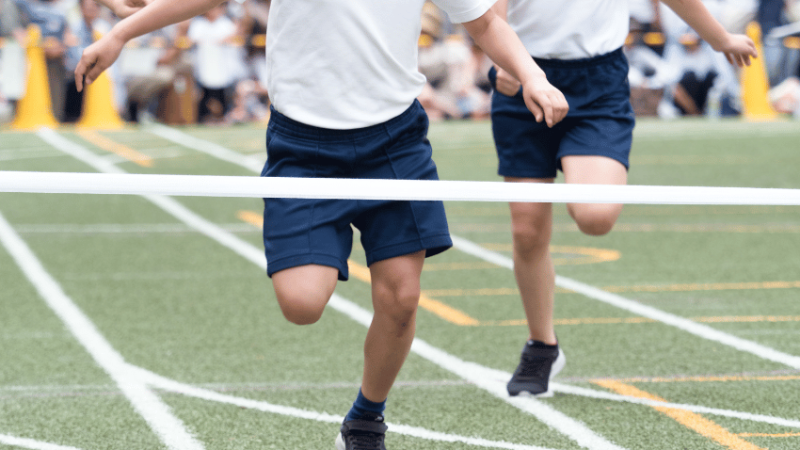Relationships education – What to cover and how to be inclusive

With relationships education now an essential part of the primary curriculum, we explain what a modern, inclusive approach looks like – and how to confidently deliver these lessons for the first time…

- by Teachwire
- Classroom expertise and free resources for teachers

With the introduction of statutory relationships and health education in 2020, many PSHE coordinators were thrust into policy changes, curriculum writing and the joys of writing action plans.
Creating an inclusive relationships education curriculum shouldn’t feel daunting and should definitely be a team effort.
Thinking about what your pupils need to know, the skills they need to develop and the culturally responsive and inclusive tools you use to enable this will help you to create the very best PSHE provision in your school.
What modern relationships education should cover
In a world immersed in social media, sexting and a rise in mental health issues, relationship education should encompass a range of relationships:
- a pupil’s relationship with themselves
- relationships with friends and family
- romantic or sexual partners
This can include:
- mental health training
- mindfulness
- anti-bullying
- charity work
- influences of social media
- social media resilience
- body image
- bereavement
- sex education
How to create an inclusive relationships education curriculum
A whole-school approach is essential to implementing a high-quality PSHE curriculum, explains Victoria Pugh…
In the past, PSHE lessons at Key Stage 1 and 2 have often been ‘one-offs’ or a quick 10 minutes in between lessons.
However, 2019 DfE guidance advised that “core knowledge is broken down into units of manageable size and communicated clearly to pupils, in a carefully sequenced way, within a planned programme or lessons”.
It’s important, therefore, that you consider a spiral curriculum, which builds on both content knowledge and skills. This doesn’t mean you need to throw the baby out with the bath water, however.
Complete an audit
Complete an audit with teachers and staff about what they think works for their individual year groups. Think about any topics you might need to swap or move to a different stage.
This allows your PSHE coordinator to ensure that there is a progression of learning, coverage of skills and content, and that you’ve considered transitions from EYFS and into Y7.
Considering the needs of each young person and your wider community is also important. Using a range of national and local data, such as Public Health England, the NHS and the National Child and Maternal Health Observatory (ChiMat), for example, you can create a bespoke curriculum to meet every child’s needs and ensure inclusion for every pupil.
Training
In my experience, many teachers lack confidence when teaching topics which may be sensitive in nature, and the worry that they will say something wrong or not know the answer can be an issue. This is where training is key.
Teachers may not have covered any PSHE education training in their initial teacher education courses or indeed had any in-service training, which makes it even more important to provide quality training for all staff.
I encourage my own student teachers to practise saying the scientific names for body parts if they find this difficult, although I do remind them that the supermarket or public spaces may not be the best time for this!
Training should also include senior leaders and governors, so that you can make decisions around provision as a team.
High-quality training ensures consistency, understanding and an ability to question current practice. It also gives an opportunity for discussion, whereby the whole team can play a part in decision-making and sharing of ideas. Decisions might include questions such as:
- How will we carry out a consultation regarding RSE with families?
- When will we introduce the teaching of scientific names for body parts?
- How will we ensure that our curriculum is representative of all pupils and families within the school?
- How can we include the community in our curriculum and incorporate the skills or work of others to enhance the curriculum?
- Does the curriculum build on skills and knowledge in an age-appropriate way?
Inclusive practice
As teachers, inclusion is at the heart of everything we do, but it’s not always easy. The nature of a PSHE lesson lends itself well to creative teaching and learning. View it as as more than just circle time.
Creating a safe space for discussion and debate is a key factor in high-quality PSHE provision and great learning opportunities.
For some pupils, the classroom will be the only place that they experience varying perspectives on a range of life issues. Therefore, our teaching needs to be culturally responsive and inclusive for all.
Using picturebooks
Using picturebooks to explore a range of issues within PSHE can be an effective and inclusive tool. They allow for an element of distancing where pupils can discuss situations and scenarios without needing to apply them personally.
As primary teachers, we might not know what is really going on in a child’s life; distancing techniques and stories can often give the child something to relate to.
Picturebooks are also vital in ensuring that pupils can see themselves represented within stories, so making sure that stories have diverse main characters and families in them can support pupils’ feelings on inclusion.
Once, when I was observing a lesson, the teacher gave out some resources and worksheets to support her Y1 pupils. A girl sighed loudly and told me that she was never on the worksheets.
When I asked her what she meant, she said all of the children on the worksheets had blonde or brown hair and white skin and didn’t look like her.
Pictures, and images in general, form a powerful tool for inclusion with classroom and school displays, giving an opportunity to celebrate diversity and inclusion.
Taking a walk around your school with a critical eye can be a useful activity to assess the inclusivity of the pictures or images displayed.
Do your displays show diversity of ethnicities, homes, family structures? Although not intentional, the lack of representation on these worksheets affected the girl’s feeling of inclusion within the class and led me to challenge how inclusive my own practice was.
Watch your language
Your use of language can also play an important part in an inclusive curriculum.
For example, you might often use a phrase such as “let your mum and dad know about …”. However, part of relationships education is for pupils to recognise that families may look different to their own.
This has to step beyond PSHE education into the language used across the whole curriculum.
Adapt phrases such as these so they are more inclusive and representative of the diversity of families and homes.
Victoria Pugh is a senior lecturer in primary PSHE and RSE at the University of Worcester. She is the series editor of Collins’ My Life PSHE scheme of work.
Advice for teaching relationships education for the first time
Matthew Lane explains how to teach your Year 6 class about the birds and the bees without the ‘eeuwws!’ and ‘errghs’…
RSE is a topic we can all find tricky to teach. It can bring up emotive content and make us question our own opinions on the relationships we have and our own attitudes to sex and sexuality.
Teaching sex education in a new school can be confusing. There is far more autonomy over what is taught in this subject than in many other curriculum areas, so approaches can differ significantly.
Trending
Even schools in the same local authority may differ in what they teach from the prescribed scheme.
So, the first job is to find the member of staff that is responsible for the curriculum and check through your school’s documentation in detail.
Book in a meeting; this is not something that should be done in the middle of lunch. If you’re not sure where to start, here are some suggested talking points:
- What is the prior learning? From where am I teaching?
- Does this need to be taught in the summer term and in isolation? Can it be folded into our PSHE and/or science lessons in the spring term?
- What MUST be taught?
- What can I cover if a question is asked?
- What most definitely cannot be taught? This is especially important with any content linked to human reproduction and contraception.
- What vocabulary should and should not be covered?
Clarify vocabulary
Some schools will have very specific vocabulary that can and cannot be used. It is surprising to see curriculums pre-2019 that specifically did not want teachers to use the word clitoris nor make any reference to it when teaching female anatomy.
In other schools, contraception may be on the county’s model curriculum but not taught by the school.
It is helpful to make a table with the MUST, COULD and BANNED words or topics which can then be shared with the other adults in the room before teaching begins.
This is especially important when covering LBGT+ content, as terminology and best practice are evolving and this content needs careful consideration.
Make sure you’re using the correct terminology, too. A penis is a penis. The vulva is external, the vagina is internal.
If we expect children to take a responsible approach to their RSE learning, it will be hobbled by talking about “boy bits” and “flowers”.
Reflect on your own experience
Like many other parts of teaching, our own personal experiences can shape our planning and delivery of RSE lessons.
Having had a good look at the curriculum, take time to reflect upon your own worldview and how this makes some content easier or more difficult to teach.
Since 2019, relationships have taken centre stage in the primary curriculum. What is your own experience of friendships and romantic relationships? Do you as an adult know what makes a “healthy relationship”?
As a child, your own questions about sex, sexuality or relationships may have been met with red faces and vague descriptions.
Historically, England has underperformed in the teaching of RSE compared to our European neighbours, with this often attributed to our seemingly Victorian views on the subject as a nation.
Just like you would with other subjects, take time to reflect on where you need to improve subject knowledge.
Relate, BBC, Childline, NSPCC and thinkuknow (CEOP) all offer great guidance and definitions on what a healthy relationship is.
Call in support
As a man who has spent the last 10 years in Years 5 and 6, I’ve taught a lot of children about periods.
Once upon a time, we would have split children into groups according to their internal or external plumbing, with girls taught by a female teacher and boys by a male. It was quite improper for boys to know about “that time of the month”.
Now staff teach what the curriculum asks of them, which can mean we meet content of which we only have an academic understanding, and where practical experience could be of benefit.
So, how can you overcome this? The best place to start is to ask your colleagues or friends.
While it’s not appropriate to discuss any personal experiences with children in any aspect of RSE, you can refer to your “friends” and share what they have said.
For instance, my class initially found it surprising I had asked my female friends what might be helpful to teach about periods, but appreciated hearing the views of real people alongside the content on the flipchart.
Teaching human reproduction confidently
While it makes up a small part of the primary RSE curriculum (nor is compulsory to be taught until KS3), human reproduction is the most awkward topic to teach for many.
It can leave us all a bit red faced, but it’s important to begin the learning as we would in any other areas.
Start by asking children to share what they already know. This prior knowledge can range from parents having already explained; garbled explanations from older siblings; playground gossip about “boys weeing inside girls” (this is suggested more often than you would think); or vague references about special cuddles and other euphemisms.
From this, explain how a man’s penis goes inside a woman’s vagina and this is the start of making a baby. And say it to your class, rather than leaving it to a video or a worksheet.
If we as the adults in the room cannot bring ourselves to verbalise the content, how can we expect children to ask thoughtful questions or speak up about sexual content when in need of help?
Check that resources are of good quality. Is the video you’re using 20 years old? Are the anatomic diagrams far too cartoonish and missing vital details?
I once was given a resource that the made a penis look like a spatchcocked chicken, where any real-life male would have been in need of medical attention if his anatomy was arranged in such a way. The boys found it hysterically incorrect; the girls were very confused.
Answering questions
Answering questions can be a minefield with human reproduction, too. Before you begin, be honest with children that there is content you can discuss if asked and some you are not allowed to.
There is also the backstop of “that is a brilliant question, but I’m not allowed to answer it. Please go home and ask a trusted adult.”
Some teachers use a question box and bits or paper, others prefer hands up. A mix of the two is helpful as some children will not want to put up their hands, but others will benefit from the ebb and flow of an open discussion.
Matthew Lane is a primary teacher and subject leader in Norfolk. Follow him on Twitter @MrMJLane and see more of his work at theteachinglane.co.uk. Browse resources for Sexual Health Week.










